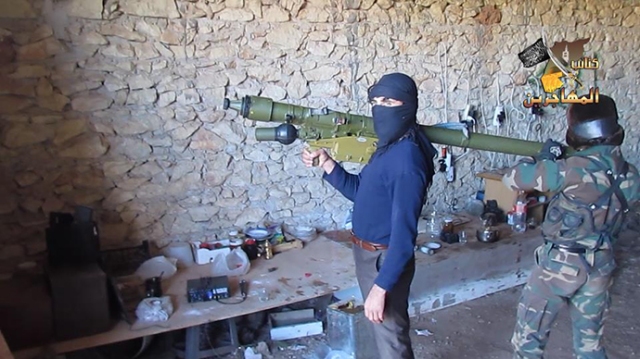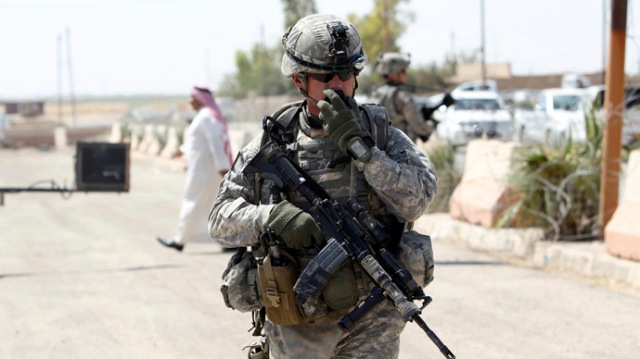
Washington fabricated several key claims regarding the 2011 mission in which a US Navy SEAL team killed Al-Qaeda leader Osama bin Laden, according to legendary journalist Seymour Hersh in the latest challenge to the White House’s narrative of the raid.
Hersh, writing in the London Review of Books, has alleged that the United States government and Pakistani officials in fact worked closely–attempting to smooth political and financial concerns between the two nations–prior to the May 2011 assault on bin Laden’s Abbottabad, Pakistan compound.
“The White House still maintains that the mission was an all-American affair, and that the senior generals of Pakistan’s army and Inter-Services Intelligence agency (ISI) were not told of the raid in advance. This is false, as are many other elements of the Obama administration’s account,” Hersh wrote.
“The White House’s story might have been written by Lewis Carroll: would bin Laden, target of a massive international manhunt, really decide that a resort town forty miles from Islamabad would be the safest place to live and command al-Qaida’s operations?”
Contrary to US claims, bin Laden was not located through tracking of his couriers but through a “walk-in,” Hersh wrote in the piece, which was sourced mainly by a “retired senior intelligence official,” among a handful of anonymous others.
In August 2010, a “former senior Pakistani intelligence officer who was knowledgeable about the initial intelligence about bin Laden’s presence in Abbottabad” approached the CIA’s station chief at the US embassy in Islamabad to report bin Laden’s whereabouts. Once deemed reliable, the unnamed source — later moved to Washington to work as a CIA consultant — collected the outstanding $25 million reward offered by the US for information about bin Laden.
Bin Laden, Hersh wrote, was captured by Pakistan in 2006 and kept warehoused at the expense of Saudi Arabia, which wanted to keep the Al-Qaeda leader under wraps based on Riyadh’s close ties to the jihadist group. In addition, bin Laden was also considered a bargaining chip for Pakistan against Al-Qaeda and Taliban.
“The ISI was using bin Laden as leverage against Taliban and al-Qaida activities inside Afghanistan and Pakistan,” the retired official told Hersh. “They let the Taliban and al-Qaida leadership know that if they ran operations that clashed with the interests of the ISI, they would turn bin Laden over to us. So if it became known that the Pakistanis had worked with us to get bin Laden at Abbottabad, there would be hell to pay.”
Once confronted by the US about bin Laden’s location following the “walk-in” source’s information, Pakistan sought increased military aid and a “freer hand in Afghanistan” from the US in exchange for bin Laden.
Pakistani Army Gen. Ashfaq Parvez Kayani and Gen. Ahmed Shuja Pasha, director general of Pakistan’s ISI, negotiated and facilitated terms surrounding the raid, including the assurance that “Pakistan’s army and air defence command would not track or engage with the US helicopters used on the mission.” The Pakistani officials operated under the assumption that President Barack Obama would not trumpet the killing in public for at least a week — which was not the eventual result.
“Then a carefully constructed cover story would be issued: Obama would announce that DNA analysis confirmed that bin Laden had been killed in a drone raid in the Hindu Kush, on Afghanistan’s side of the border,” Hersh wrote.
Upon reaching the facility in Abbottabad, Navy SEAL Team Six encountered no resistance, as an “ISI liaison officer flying with the Seals guided them into the darkened house and up a staircase to bin Laden’s quarters,” Hersh wrote.
The “invalid” bin Laden “was cowering and retreated into the bedroom. Two shooters followed him and opened up. Very simple, very straightforward, very professional hit,” the retired official said. Bin Laden was not, as the White House said, killed by the SEALs out of self-defense amid a firefight.
The SEALs had so much clearance, Hersh wrote, that after the raid – which included the crashing of a Black Hawk helicopter – they were able to wait several minutes unimpeded for additional air transportation outside the compound in a resort town very near Pakistani military installations and rife with armed personal bodyguards at private residences.
During the raid, bin Laden’s body was torn to pieces by rifle fire, according to the account, and parts of his body were later “tossed out over the Hindu Kush mountains.” His burial at sea consistent with Islamic custom — a claim made by US officials — was also fabricated, Hersh wrote.
The supposed cache of intelligence material taken from the compound was another lie, Hersh reported, used to justify the raid.





